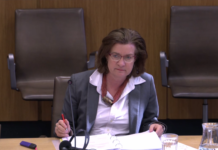Cash crisis looms for rural churches
Rural churches are facing a funding crisis due to a lack of internet connectivity and a series of bank closures, a survey of churches has uncovered.
Ecclesiastical Insurance found a third (32%) of rural churches that aren’t using digital donations blamed a lack of internet connectivity in their area, leaving them reliant on cash donations.
The lack of reliable internet connectivity is a major challenge facing rural churches, compounded further by mobile phone networks switching off their 3G networks by 2025.
Overall three in five (60%) of churches in the UK have said they are receiving digital donations – with three quarters (76%) of those accepting contactless donations and two thirds (65%) taking donations online. In rural settings, digital donations drop to a little over a half (55%) of churches.
A disproportionate number of bank closures in rural areas is another issue for rural churches to navigate. Government data reveals a 44% drop in the number of banks in the UK between 2010-2022 with further closures announced by major banks since.
Almost all (95%) of rural churches said they take cash donations compared to less than three quarters (70%) in city centre churches. With cash more difficult to access, churches in rural areas are experiencing more difficulty in generating vital funds than their urban peers.
Despite these rapidly emerging challenges, when asked whether they had a fundraising plan in place almost half (48%) of churches said they didn’t with over half (54%) in rural areas saying they didn’t. When asked why, half responded to say they didn’t need a formal plan while over one in ten (13%) said no-one wanted to take responsibility.
Ecclesiastical launched a church fundraising hub in 2020 which contains fundraising resources developed to provide churches with steps to take to make fundraising easier and more successful.
Helen Richards, church operations director at Ecclesiastical, said: “As our banking habits have changed over the years, churches have had to adapt to make sure they’re keeping up. By embracing digital donations they’re able to safeguard their income generation, which is great news – helping to preserve the church now and into the future.
“There are challenges ahead though, not least the issue around rural connectivity issues and bank closures. It’s a concern that so many respondents to our survey said they don’t have a fundraising plan in place. From a future resilience of the church perspective this exposes them to risks – such as the loss of one revenue stream in cash donations.
“We launched our church fundraising hub to give churches and their volunteers tools and advice on how to effectively fundraise – whether that’s for major projects they’re working on or to help with running costs. A fundraising plan can help to galvanise support within the congregation and community, giving clear targets for the community to work towards, and we’d encourage churches to use the resources available to help them.”
Ecclesiastical’s research also found the most popular form of donation to churches was through monthly direct debits (94%) with cash donations a close second (91%) followed by bank transfers (77%).
For more information on Ecclesiastical’s fundraising support for churches, visit ecclesiastical.com
Help keep news FREE for our readers
Supporting your local community newspaper/online news outlet is crucial now more than ever. If you believe in independent journalism, then consider making a valuable contribution by making a one-time or monthly donation. We operate in rural areas where providing unbiased news can be challenging. Read More About Supporting The West Wales Chronicle






















